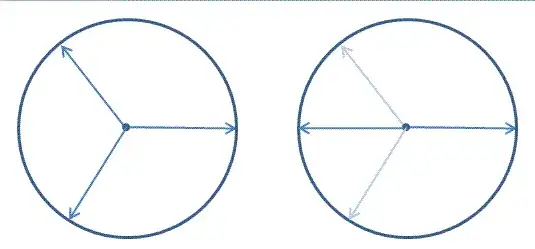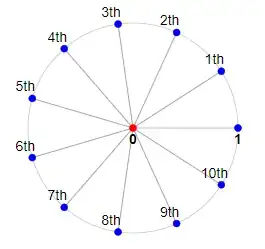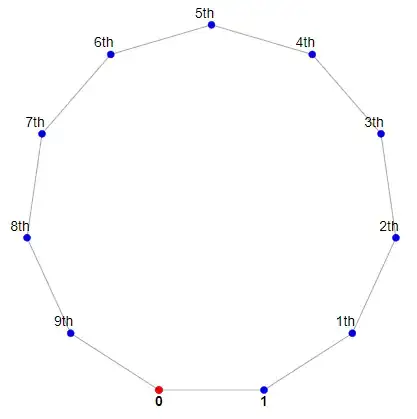Wikipedia says that it is intuitively obvious that the sum of $n$th roots of unity is $0$. To me it seems more obvious when considering the fact that $\displaystyle 1+x+x^2+...+x^{n-1}=\frac{x^n-1}{x-1}$ and that $\{\alpha \in \mathbb{C}: \alpha^n=1\}$ is a cyclic group.
For me, it is hard to, intuitively, see this in the case that $n$ is an odd composite natural number.
Here is my reasoning thus far:
Let $n=5$. (I understand this is simple when considering the minimal polynomial).
Since the conjugate of an $n$th root of unity is also an $n$th root of unity, it is easy to see that, when written in trigonometric form, the sum (possible reordering here)
$1+\alpha^1+\alpha^2+\alpha^3+\alpha^4$
$=1+( \cos (72)+i \sin (72))+( \cos (144) + i \sin (144))+( \cos (72)-i \sin (72))+( \cos (144)-i \sin (144))$
$=1+2 \cos (72)+2 \cos (144)$.
Somehow $2 \cos (72)+2 \cos (144)=-1$, but I'm not sure this is obvious, or perhaps I'm being silly here.
What do you think? Silly?


